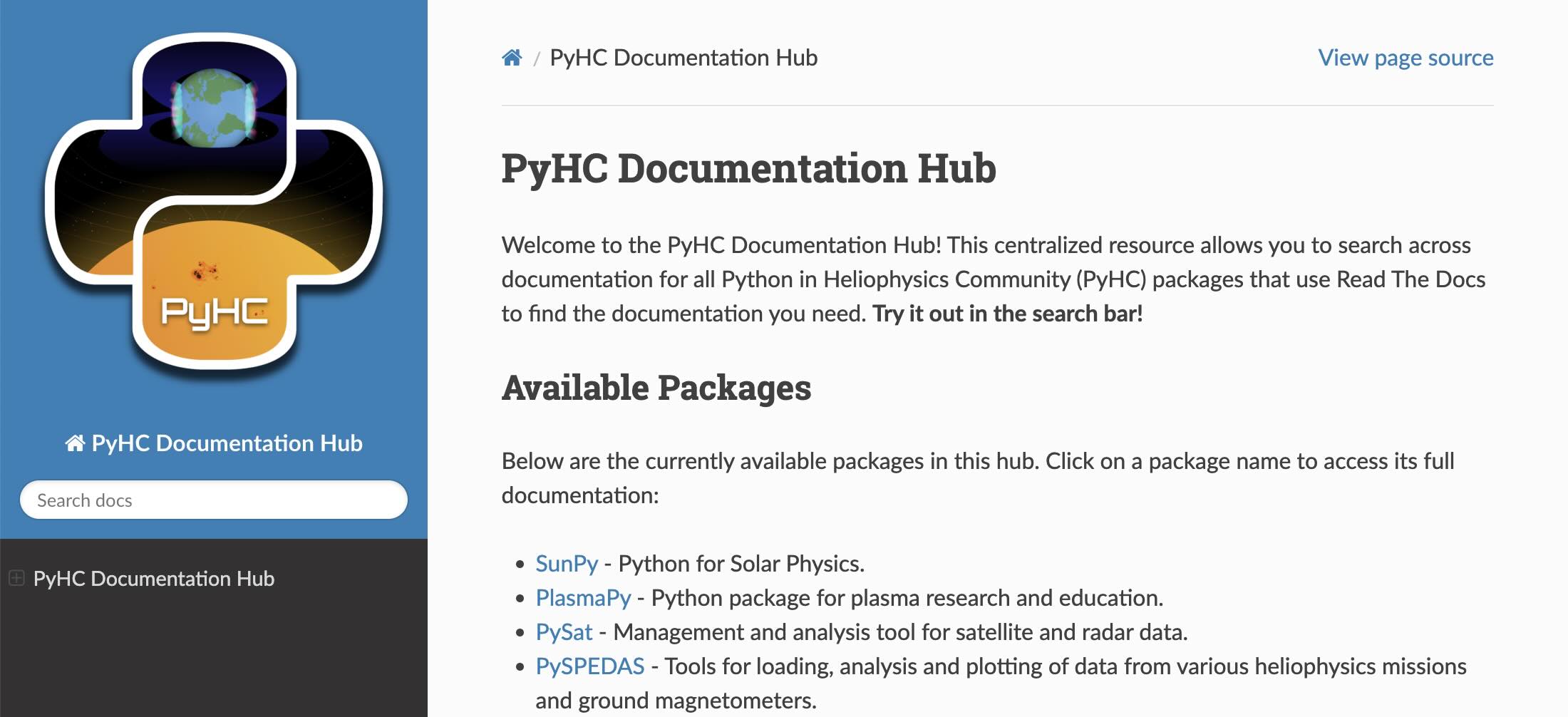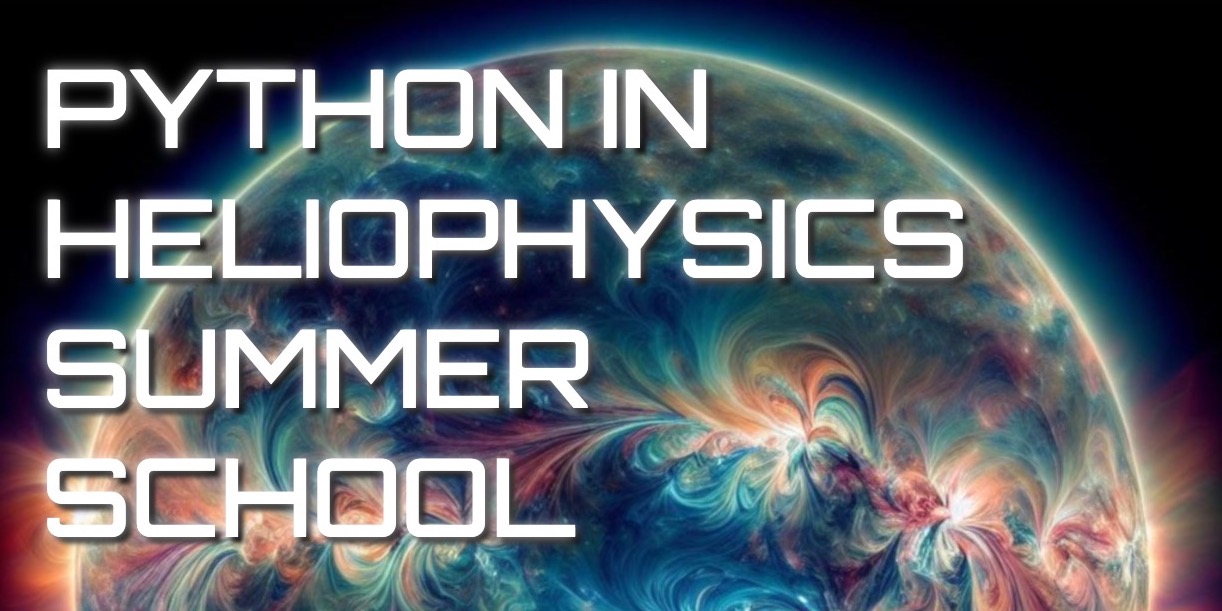Python in Heliophysics Community
Promoting and facilitating the use and development of Python for Heliophysics.
A community knowledge base for performing heliophysics research in Python, aiming to provide a variety of tutorials, resources, a list of useful packages, general discussion, and advice.
Our Mission Statement
Facilitate scientific discovery by promoting the use and development of sustainable open-source Python software across the solar and space physics community; improving communication and collaboration between disciplines, developers, and users; establishing and maintaining development standards; and fostering interoperability and reproducibility.
Our Strategic Goals
- Coordinate development across projects to minimize duplication of effort and share lessons learned
- Promote best practices for software development, documentation, testing, and dissemination
- Increase community awareness of and participation in projects
- Promote scientific reproducibility and software sustainability
- Educate and support the Python user community in solar and space physics
- Foster an open-source Python software ecosystem for heliophysics research and education
- Identify community needs for future development
- Identify and pursue opportunities for financial support
- Enable efficient interdisciplinary research
Calendar
PyHC meets in person twice yearly. Telecons are held approximately every two weeks on Mondays at 09:00 AM Mountain time, but this can fluctuate depending on holidays, conferences, etc. Meetings and telecon times are available on our Google Calendar:
News
Announcing PHEP 3

PyHC has formally adopted PHEP 3: PyHC Python & Upstream Package Support Policy! This new PHEP establishes a unified, time-based approach to dependency support across the PyHC ecosystem, bringing our community into alignment with the broader Scientific Python ecosystem.
PHEP 3 recommends that all PyHC packages adopt the following support policy, based on SPEC 0:
- Support Python versions for 36 months (3 years) after their initial release
- Support core Scientific Python packages for 24 months (2 years) after their initial release
- Adopt new versions within 6 months of their release
This policy applies to Python itself and to the upstream core Scientific Python packages: NumPy, SciPy, Matplotlib, pandas, scikit-image, NetworkX, scikit-learn, xarray, IPython, and Zarr.
To learn more, read the full PHEP 3 document. We will also maintain a PHEP 3 Support Schedule page with a graphical timeline and quarterly reminders to help package maintainers stay on track. Questions or feedback? Join the discussion on PyHC’s mailing list or Slack!
Introducing the PyHC Documentation Hub!

We’re excited to announce the launch of the PyHC Documentation Hub, now available at pyhc.org/pyhc-docs. This centralized resource simplifies how you search across documentation for all PyHC packages that use Read The Docs. No more switching between dozens of disparate package websites to find the information you need. The Hub not only links all packages together in one convenient place but also provides a powerful search interface that organizes results by package for easy navigation. Find documentation faster than ever—we hope you find it useful. Try it out today!
Poster Abstract Submission Open for the PyHC 2024 Summer School

As a reminder, the Python in Heliophysics Community (PyHC) 2024 Summer School is set to take place Monday, May 20th to Friday, May 24th at the prestigious Laboratory for Atmospheric and Space Physics (LASP) in scenic Boulder, Colorado, USA and online on Zoom. This year’s Summer School builds on the foundational success of its predecessor, offering an even deeper dive into the rich ecosystem of Heliophysics Python packages. Open to undergraduate and graduate students, early career scientists, and anyone eager to deepen their understanding of Python in the Heliophysics and Space Weather disciplines, this program promises a mix of in-depth tutorials, engaging demos, and hands-on sessions, delivered by some of the field’s leading experts. If you have not yet registered for the summer school, it is free to do so and a link for it can be located on the summer school’s web page. You’ll also find there a link to suggesting housing, NSF travel support applications, specific location, the agenda, and other important information.
If you plan to attend the PyHC 2024 summer school on site in Boulder, CO at LASP, and are interested in presenting on your work within Heliophysics/Space Physics and Python, the summer school poster session is your best bet! Bonus points if you can show work you’ve done that leverages the PyHC ecosystem. We have created a Google form to which you can submit your abstracts for the poster session, which will help the organizing committee adequately plan for the poster session, and ensure all submissions are on topic.
Submit PyHC 2024 summer school poster abstracts here. Deadline for abstract submission is Monday, May 6th, 2024 at 11:59 PM MT.
subscribe via RSS